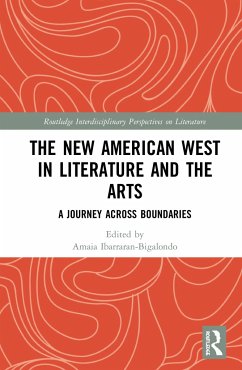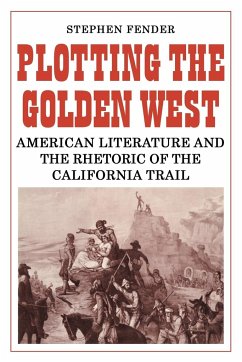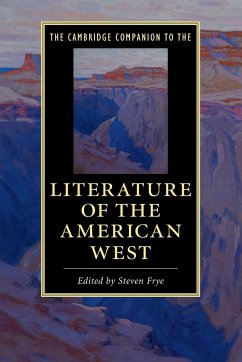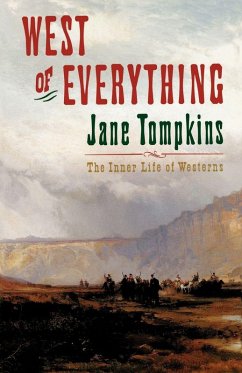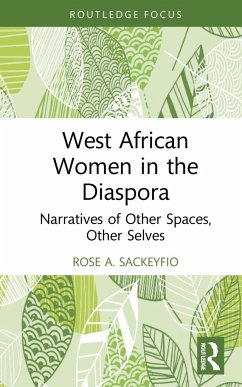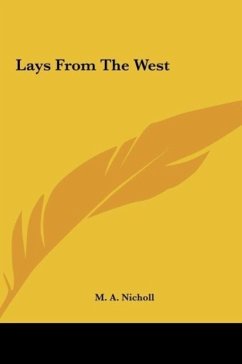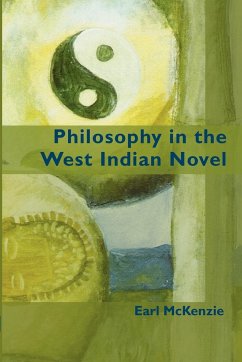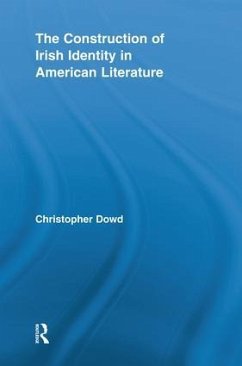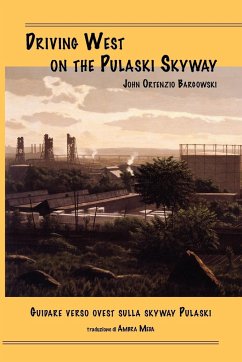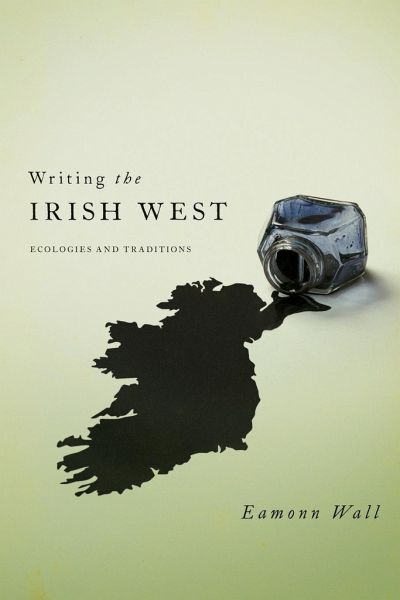
Writing the Irish West
Ecologies and Traditions
Versandkostenfrei!
Versandfertig in 1-2 Wochen
31,99 €
inkl. MwSt.

PAYBACK Punkte
16 °P sammeln!
In recent decades, a large and well-regarded volume of creative work has emerged from the West of Ireland, written by residents of the region, by those raised in West of Ireland families outside the region, and by seasonal and occasional visitors. The fiction of John McGahern, the plays and films of Martin McDonagh, Tim Robinson's maps and place studies, the work of Richard Murphy, and the poetry of Mary O'Malley, Moya Cannon, and Sean Lysaght are known and admired worldwide. Yet, for all that has been made of the Western themes and settings in the work of such writers, and others, little effo...
In recent decades, a large and well-regarded volume of creative work has emerged from the West of Ireland, written by residents of the region, by those raised in West of Ireland families outside the region, and by seasonal and occasional visitors. The fiction of John McGahern, the plays and films of Martin McDonagh, Tim Robinson's maps and place studies, the work of Richard Murphy, and the poetry of Mary O'Malley, Moya Cannon, and Sean Lysaght are known and admired worldwide. Yet, for all that has been made of the Western themes and settings in the work of such writers, and others, little effort has been made to examine their work collectively and in depth. Eamonn Wall's Writing the Irish West: Ecologies and Traditions is the first critical study to examine these seven contemporary Irish writers in their shared Western context. Wall describes, analyzes, and contextualizes their work to show the fundamental ways in which the region has influenced and shaped it. Certain themes and commonplaces recur obsessively: the bilingual nature of Western life and language, landscape, gender, poverty, the individual's relationship to nature and place, connections between Christianity and paganism, the overpowering weight of history, and each author's complex relationship to the Irish Literary Revival of Yeats, Lady Gregory, and J. M. Synge. Although well-developed theoretical approaches to reading Western American literature have been practiced for years, no such approaches exist in Irish discourse. Wall draws on extensive research on the literature of the American West for a comparative study that places the Irish and American Wests side by side. Underlined by an engagement with the role ecology plays in the study of literature, Writing the Irish West highlights uncanny connections between the works of West-of-Ireland writers and their Western American counterparts. "Eamonn Wall's daring book explores the cultural ecology of Ireland and America through the creation of an idea of the west that is at once gesture, criticism, and a sensory history of passing time. If true places are never on maps, Wall's critical cartography points the reader to new departures in the reading of Tim Robinson, Richard Murphy, and many others. Personal, reflective, and ambitious to engage with the wonder of literature and place, Wall has written a rich future for the writers and landscapes he loves." --Nicholas Allen, National University of Ireland, Galway "This book makes an important contribution to transatlantic Irish studies. Wall's critical focus on ecocriticism is timely, providing new readings of Irish writing across genres. He employs a methodology that attends to literary cartography, postcolonial contexts, and persuasive close readings of his authors. What results is a book that is fresh, illuminating, and substantive, one that elucidates a new understanding of the literary and cinematic representations of the American West." --Susan N. Maher, Dean, College of Liberal Arts, University of Minnesota Duluth "Eamonn Wall's splendid new study ranges freely through contemporary Irish and American culture with both grace and precision. Focused on seven writers about the Irish West, Wall summons apt and surprising parallels and contrasts within Ireland itself and across the water to America. If, as T. S. Eliot said, disparate materials are always forming new wholes in the poet's mind, then this is a poet's criticism par excellence." --George Bornstein, University of Michigan





